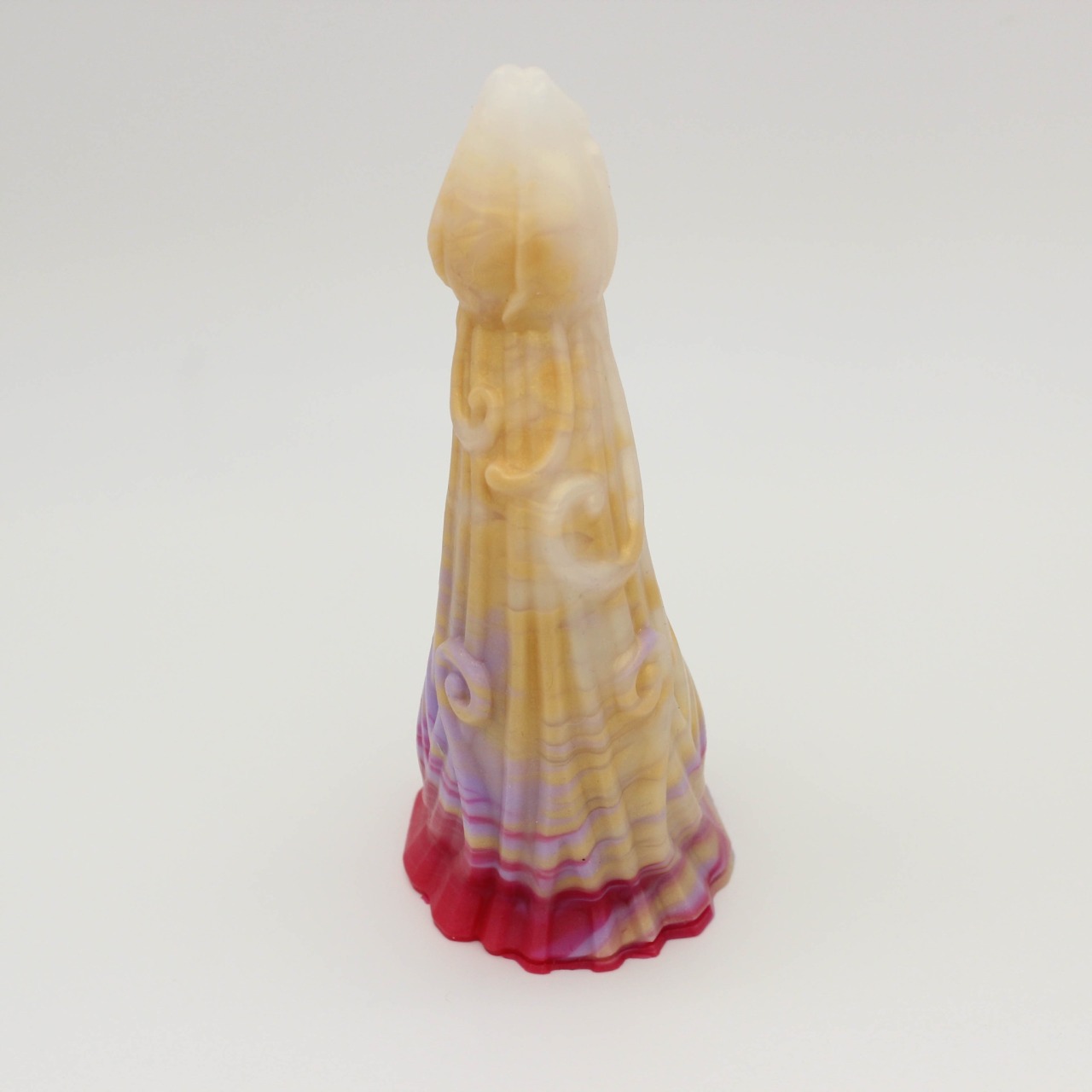Have you ever wondered what makes a story truly stand out, not just for its plot, but for its lasting impression? It's that special something, a certain polish, a quiet strength that comes from a story being well-made. This quality, which we might call "cultured," is about stories that show a deep respect for the craft, tales that feel thoughtful and carefully put together. It's about words chosen with care, characters that feel real, and plots that move with purpose, reflecting a kind of literary good taste. This idea of bringing a refined touch to storytelling is exactly what places like "cultured fiction labs" aim to do.
These labs are places where writers come together to grow their craft, much like a gardener tends to a precious plant. They are environments where stories are not just written, but truly developed, given time to mature and show their best qualities. Think of it as a space for learning and practice, where people who love stories work to make them better, drawing on a rich background of ideas and ways of telling tales. It's about bringing a certain kind of polish to the written word, making sure each piece of writing feels considered and well-done, in a way, like a good conversation with someone who knows a lot about many things.
The aim is to help stories become more than just words on a page; they become pieces of art that show good manners in their construction and a wide range of knowledge in their themes. These labs help writers explore different ideas and art forms, making their stories richer and more interesting for those who read them. So, really, it's about making stories that are not just entertaining, but also intelligent and well-formed, showing a real appreciation for the art of writing, which is something quite special.
- Salmon Lasagna Rolls
- Are You Really Silly
- Just Gimme My Money Kai Cenat
- Kinchana Ding Ding Ding Song
- Who Plays Tally The Elf At Disney
Table of Contents
- What is a Cultured Fiction Lab, really?
- How Does a Cultured Fiction Lab Shape Writers?
- Are Cultured Fiction Labs Just for Certain Kinds of Stories?
- What Makes a Fiction Lab Cultured?
What is a Cultured Fiction Lab, really?
When we talk about something being "cultured," we often think of someone who has a good education and knows a lot about art, music, and books. This person tends to have good manners and a thoughtful way of looking at things. So, too it's almost, a "cultured fiction lab" takes this idea and applies it to the making of stories. It is a place where the goal is to create fiction that reflects these qualities, stories that are well-made and show a deep appreciation for creative expression.
In such a setting, the act of writing becomes more than just putting words down. It becomes a process of careful thought, much like a skilled artist plans a painting. The focus is on making stories that are not only interesting but also show a certain level of refinement and good taste. This means paying close attention to the way words are used, how characters behave, and the overall feeling a story gives to its readers, which is, in a way, quite important.
The "lab" part of the name suggests a place of experimentation and learning, where ideas are tested and refined. It is where writers can work on their stories, getting feedback and trying out new ways to tell tales. This is not about being stuffy or overly serious, but about truly caring about the quality of the stories being made. It's about giving writers the chance to make their work as good as it can be, nearly, a place where stories can truly blossom.
- Minitinah Before Surgery
- Stepmom On Vacation
- Johnny Blue 711
- Fmshticwa Meaning Slang
- Laufey Fortnite Emote
The Core of Cultured Story Making
At the heart of creating cultured stories is a deep respect for learning and knowledge. Writers in these labs are encouraged to read widely, to understand different ways people have told stories throughout history, and to draw on a broad pool of information. This background helps them build stories that have a solid foundation, tales that are not just quickly put together but show a thoughtful approach, that, is, quite valuable.
A cultured story might also show a sense of good manners in its telling. This does not mean every character is polite, but rather that the story itself is constructed with a certain grace. The narrative might handle difficult topics with sensitivity or explore human interactions with a keen sense of social awareness. It's about how the story behaves, so to speak, how it presents its ideas and characters to the reader, making it, in some respects, more inviting.
The influence of various arts plays a big part here. A writer might get ideas from a piece of music, a painting, or even a dance. These different forms of expression can inspire new ways to structure a story, to create a mood, or to develop a character. This cross-pollination of ideas from different artistic fields helps to make the stories richer and more layered, which is, actually, a wonderful thing.
Reading widely is, in fact, a cornerstone. Someone who reads many kinds of books, from old classics to new works, gains a deeper sense of what makes a story work. This broad reading helps writers understand different styles, different voices, and different ways to connect with readers. It gives them a kind of inner library to draw from, making their own writing more informed and, therefore, more interesting to many people, you know.
How Does a Cultured Fiction Lab Shape Writers?
These labs play a big part in helping writers grow. They encourage people to look beyond their usual experiences and to seek out new ideas, new places, and new ways of seeing the world. This exposure helps writers bring a wider perspective to their stories, making their narratives feel more genuine and more connected to the varied experiences of people everywhere. It's about broadening one's own personal story to include more of the world, very much like a traveler collects memories.
A key aspect is helping writers develop a refined taste in storytelling. This means learning to tell the difference between writing that is merely okay and writing that truly shines. It involves understanding what makes a sentence sing, what makes a character unforgettable, and what makes a plot truly engaging. This kind of discernment comes from practice and from being around others who also care deeply about the craft, which is, pretty much, how skills get better.
Learning from different ideas and places is also a big part of what these labs offer. Writers might discuss philosophies from different cultures, historical events from far-off lands, or scientific concepts that stretch the imagination. This sharing of diverse thoughts helps writers create stories that are not only entertaining but also thought-provoking and full of new perspectives. It's about opening up to all sorts of influences, so, really, the stories become more layered.
Refining Fiction in the Labs
The process of polishing stories is central to what happens in a cultured fiction lab. It is not enough to simply write a first draft; the work then begins to make that draft shine. This involves careful editing, rewriting sections, and paying close attention to every word choice. It's a bit like a sculptor chipping away at a block of stone, slowly revealing the beautiful form hidden within, naturally, a slow but rewarding process.
Moving beyond initial drafts to something more sophisticated is a key goal. This means taking a story that has good bones and adding layers of detail, emotional depth, and thematic richness. It's about making sure that every part of the story works together in harmony, creating a piece that feels complete and well-considered. This can involve many rounds of changes, making sure the story truly expresses what the writer wants to say, you know, just like a chef perfecting a recipe.
The role of feedback and discussion is extremely important. Writers share their work with others in the lab, and they get honest, helpful comments. This is not about criticism for its own sake, but about helping each writer see their story through new eyes. These discussions help writers identify areas where their story could be clearer, more impactful, or simply more enjoyable to read, which, in fact, helps everyone improve their craft.
Are Cultured Fiction Labs Just for Certain Kinds of Stories?
Sometimes, when people hear the word "cultured," they might think of stories that are only for a very specific audience, perhaps those considered "highbrow" or overly academic. However, a cultured fiction lab is not just for one kind of story. It is not about writing only literary fiction or historical dramas. The idea of "cultured" here is about the quality and thoughtful creation of any story, regardless of its type, basically, making any story better.
The principles of being well-educated, refined, and having good manners in writing can apply to all sorts of genres. A science fiction story can be cultured by having deeply thought-out world-building and characters with complex inner lives. A mystery can be cultured by having clever plotting and a strong, distinctive voice. It is about bringing a level of care and intelligence to whatever kind of story you choose to tell, so, in a way, it makes all stories richer.
The idea of quality and depth in any story is what truly matters. Whether it is a fast-paced thriller or a quiet character study, a cultured approach means that the story is crafted with attention to detail, a respect for language, and a desire to connect with readers on a meaningful level. It is about making sure the story leaves a lasting impression, not just for its plot, but for its overall excellence and thoughtful creation, which is, really, a mark of true skill.
Labs for Cultured Narrative Exploration
These labs encourage writers to look for new ways to tell stories, but always with that refined touch. This means experimenting with different structures, different points of view, or different ways to present information, while still making sure the story feels well-made and polished. It is about being creative and pushing boundaries, but doing so with a solid understanding of storytelling traditions, which is, apparently, a very good balance.
Pushing boundaries while maintaining quality is a delicate act. A cultured fiction lab helps writers explore new ideas without losing sight of what makes a story enjoyable and meaningful. It is about taking risks, but doing so in a way that shows careful thought and a deep respect for the reader. This approach can lead to truly original works that are both innovative and deeply satisfying to experience, you know, like discovering a new favorite artist.
The blend of tradition and fresh ideas is a hallmark of this approach. Writers learn from the great stories of the past, understanding what made them work, and then they apply those lessons to create something new and exciting. It is about building on what has come before, rather than simply repeating it, and adding one's own unique perspective. This creates a kind of storytelling that feels both timeless and current, a little bit like old wisdom applied to new situations.
What Makes a Fiction Lab Cultured?
The environment itself plays a big role in fostering this kind of writing. A cultured fiction lab is a place where learning is valued, where open discussion is encouraged, and where writers feel safe to share their work and get honest feedback. It is a space that supports deep thinking and careful creation, rather than just quick output. This kind of setting helps writers slow down and truly focus on the craft, which is, honestly, a rare find these days.
The people involved, and their approach, are what truly define such a lab. It is made up of writers who are curious, who are committed to improving their skills, and who have a genuine love for stories. They are often well-read and eager to share their knowledge, creating a community where everyone helps each other grow. This shared passion and dedication create a special atmosphere, making it, literally, a place where creativity can thrive.
The outcomes are stories that resonate deeply with readers. These are the stories that stay with you long after you have finished reading them, the ones that make you think, or feel something profound. They are the result of careful work, thoughtful consideration, and a genuine desire to create something beautiful and meaningful. These stories are not just good; they are, in a way, truly exceptional, leaving an impact that lasts.
The Future of Fiction Labs
The ideas from cultured fiction labs have the potential to spread widely. As more writers seek to create stories with depth and lasting value, these principles of careful craft and broad knowledge will become even more important. It is about setting a higher standard for storytelling, encouraging everyone to aim for quality in their written work, which is, pretty much, a good thing for readers everywhere.
Encouraging more thoughtful story creation is a key aim. In a world where so much content is produced quickly, there is a real need for stories that are made with care and consideration. Cultured fiction labs show that taking the time to refine and develop a story can lead to something truly special, something that stands out from the crowd. This approach helps ensure that stories continue to be a powerful force for connection and understanding, you know, like a well-crafted bridge between minds.
The lasting impact of such places is clear. By helping writers create stories that are well-made, thoughtful, and rich in ideas, cultured fiction labs contribute to a stronger, more vibrant world of literature. They help ensure that the art of storytelling continues to grow and develop, offering readers not just entertainment, but also insight and beauty. This means that future generations will have a wealth of truly excellent stories to enjoy, which is, definitely, a wonderful legacy.
The discussion above explored what "cultured fiction labs" mean, drawing from the idea of being educated, refined, and having good taste in arts and knowledge. We looked at how these labs aim to create stories that are well-made, showing a deep appreciation for the craft, and how they help writers grow by encouraging broad experiences and a refined sense of storytelling. The piece also considered how these principles apply to all types of stories, not just a select few, and highlighted the importance of the environment and the people within these labs for producing work that truly connects with readers. Finally, it touched upon the lasting positive effects these labs could have on the broader world of stories.



Detail Author:
- Name : Bernardo Halvorson
- Username : eichmann.jaeden
- Email : vdouglas@damore.com
- Birthdate : 2006-03-15
- Address : 204 Dianna Hills Suite 937 Gerholdshire, GA 33205-7595
- Phone : 1-325-363-4680
- Company : Wolff-Toy
- Job : Armored Assault Vehicle Officer
- Bio : Rerum totam non cum et vel unde quis. Ea optio aspernatur non quo. Quasi rerum qui voluptas voluptatem harum. Mollitia dolor magnam alias excepturi repellendus molestiae laboriosam optio.
Socials
instagram:
- url : https://instagram.com/lacey_lindgren
- username : lacey_lindgren
- bio : Ullam itaque eaque dolorem rerum et voluptas. Nemo sed consequuntur soluta quia est.
- followers : 5691
- following : 681
facebook:
- url : https://facebook.com/lacey.lindgren
- username : lacey.lindgren
- bio : Est quas ut quidem rerum odio aut. Aspernatur non est rem culpa nobis.
- followers : 4013
- following : 2769
linkedin:
- url : https://linkedin.com/in/lindgren1984
- username : lindgren1984
- bio : Et est et delectus autem saepe et ut a.
- followers : 3782
- following : 1318
twitter:
- url : https://twitter.com/lindgren1995
- username : lindgren1995
- bio : Cum facilis est repellendus est quibusdam. Fuga ut laudantium doloribus qui esse voluptas odit. Nobis amet cupiditate quod expedita vero repellat id.
- followers : 4836
- following : 934